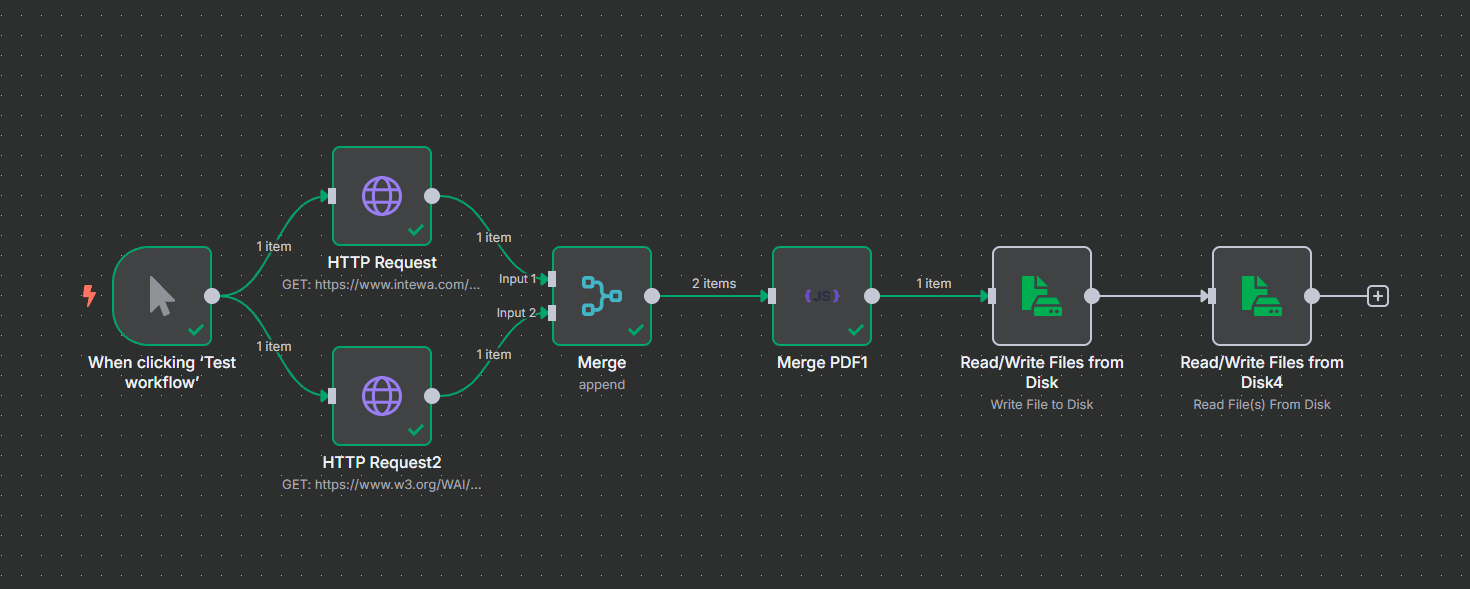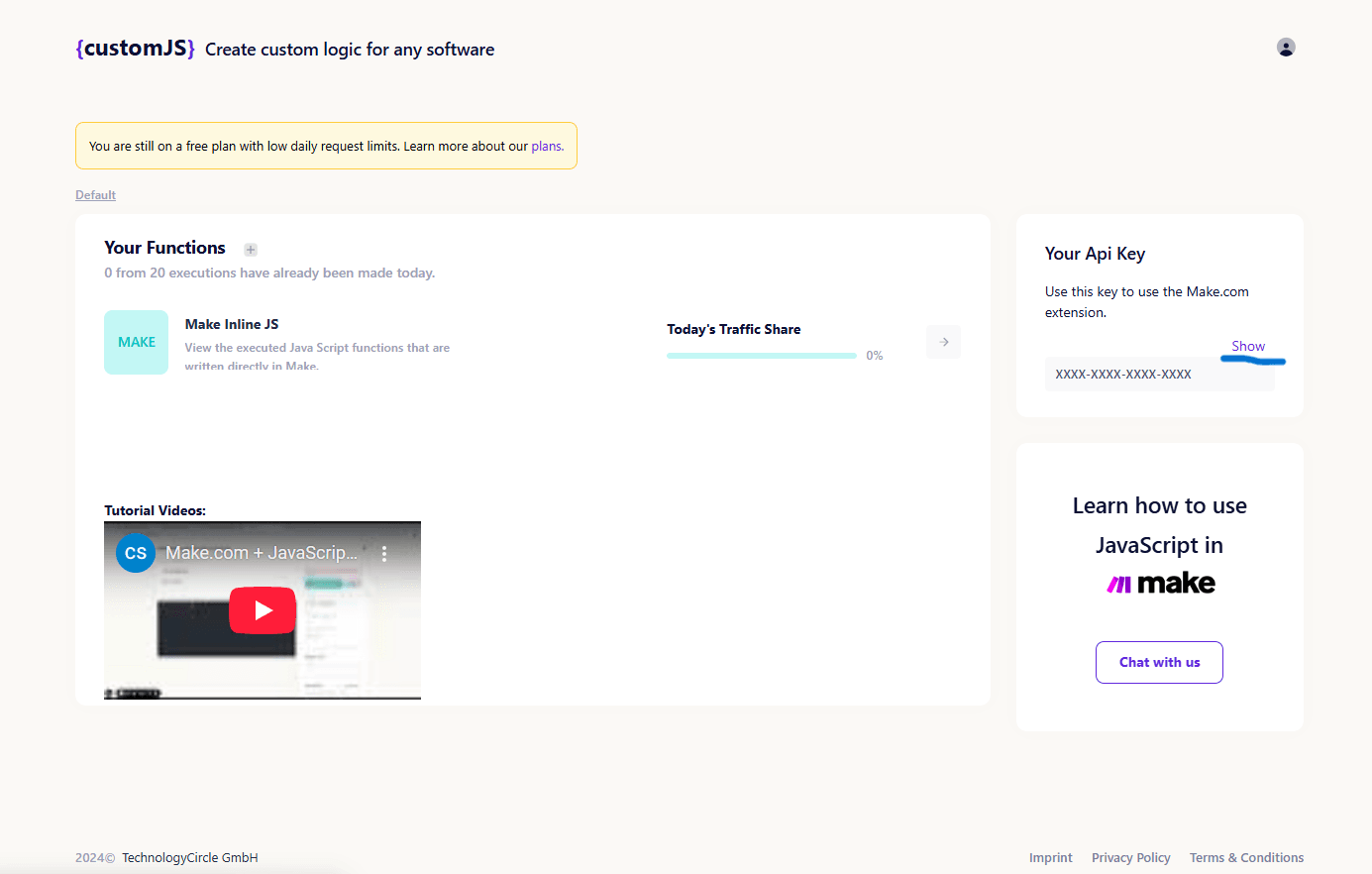
This n8n template demonstrates how to download multiple PDF files from public URLs and merge them into a single PDF using the PDF Toolkit from www.customjs.space.
@custom-js/n8n-nodes-pdf-toolkit
Notice
Community nodes can only be installed on self-hosted instances of n8n.
What this workflow does
- Downloads each PDF using an HTTP Request.
- Populates files into an array with Merge node from n8n.
- Merges all downloaded PDFs using the Merge PDF node from the @custom-js/n8n-nodes-pdf-toolkit.
- Writes the final merged PDF to disk.
Requirements
- Self-hosted n8n instance
- CustomJS API key for merging multiple PDF files.
- PDF files to be merged to be converted into a PDF
Workflow Steps:
-
Manual Trigger:
- Runs with user interaction.
-
HTTP Request Node For PDF Download:
- Pass urls for PDF files to merge.
-
Merge Node For Array Population:
- Just populates two files into an array.
-
Merge PDF files:
- Uses the CustomJS node to merge the incoming PDF files into a single PDF file.
- If size of PDF files exceeds 6MB, you can simply pass an array of URLs for PDF files.
Usage
Get API key from customJS
- Sign up to customJS platform.
- Navigate to your profile page
- Press "Show" button to get API key

Set Credentials for CustomJS API on n8n
Copy and paste your API key generated from CustomJS here.

Design workflow
- A Manual Trigger for starting workflow.
- Two HTTP Request Nodes for downloading PDF files.
- A Merge Node for populating files as an array.
- Merge PDFs node for merging files
- Write to Disk node for saving merged PDF file.
You can replace logic for triggering and returning results.
For example, you can trigger this workflow by calling a webhook and get a result as a response from webhook. Simply replace Manual Trigger and Write to Disk nodes.
Perfect for
- Bundling reports or invoices.
- Generating document sets from external sources.
- Automating PDF handling without writing custom code